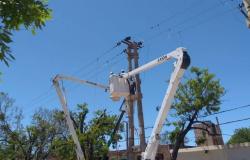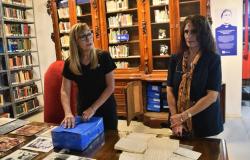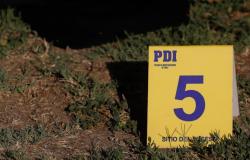Under the slogan #LetTheyUnderstandWhatTheyRead“Argentinos por la Educación” and more than 180 civil society organizations relaunch the Thursday, April 25, the National Campaign for Literacy. The objective is to make visible what is happening with reading comprehension in Argentina, so that it is a priority on the educational agenda and the situation is reversed.
According to the latest UNESCO international evaluations in which 16 countries participated (ERCE 2019 tests), in Argentina, 46% of third graders do not understand what they read. But that figure reaches up to 61.5% among students with the lowest socioeconomic level. In our country, only 1 in 10 students (14%) is at the highest performance level in reading. While for the region, the average is 2 out of every 10 students (21%). In Brazil (30%) and Peru (30.8%), 3 out of 10 students reach the highest level.
See: Mendoza students began the 2024 Reading Fluency Census
Given these results, on May 4, 2023, the National Literacy Campaign was launched for the first time with the slogan #TheyDon’tUnderstandWhatTheyReadwith the support and participation of journalists, artists and personalities such as Ricardo Darón, Emiliano “Dibu” Martínez, Pupi Zanetti, Paula Pareto, Eleonora Wexler, and many more, who joined the initiative by sharing photos and messages on social networks.
This year, and with new statistics, more than 180 NGOsamong them Argentinos por la Educación, Asociacin Conciencia, Educar y Crecer, Más Voces, Ense por Argentina, Fundacin Leer, AMIA, Fe y Alegra, Minkai, Voy con Vos and Hablemos de Bullying, among others, propose to reinstate the Campaign to reverse the critical educational situation, understanding that it is a systemic problem that affects all socioeconomic levels.
This is confirmed by the international PISA 2022 results, which evaluate a sample of 15-year-old students from 81 countries, which indicate that the 32% of 15-year-old students in the highest socioeconomic level do not reach the minimum reading level, while the figure rises to 7 out of 10 in the lowest socioeconomic level.. Argentina scored 378 points in Mathematics, one point less than in the previous edition and almost 100 points less than what the countries that make up the OECD obtain, on average. Argentina was ranked 66th out of 81 countries in Mathematics. In Language and Science, 5 out of 10 students did not reach the minimum levels of performance.
The richest Argentine students are the second richest in the region, and yet they have worse results in the PISA evaluation than their peers from Chile, Uruguay, Colombia, Peru and Mexico.
Career in primary and secondary school
If we analyze what happens throughout the students’ school trajectories, according to data from national assessments, we observe that Only 43 out of every 100 students who begin primary school reach 6th grade on time and with the expected learning in Language and Mathematics. And, in the last year of high school, there are much fewer who arrive on time and with the expected knowledge: Only 13 out of 100 kids. In other words, the problem of lack of learning is increasing.
In the year 2022, only 21.5% of students of theoretical age managed to meet the satisfactory requirements for both language and mathematics. This represents a significant reduction of 12.6 percentage points compared to the results of 2019.

“It is very common to hear in educational settings that kids get to college without making a simple rule of three; or children reach secondary school without understanding basic texts’. Organizations that work in education have been raising our voices for years so that the entire society becomes aware that the basis of all these diagnoses is initial literacy. “It is key to debate and find new meeting points in the country’s educational system.” he indicates. Marcelo VelzquezDirector of the NGO Ms Voces.
The Deputy Executive Director of the León Foundation, Federico Daz Marinounderstands that “Investing in early childhood programs reduces public spending by the State and generates a more promising future in the communities. All provinces must have a literacy plan, it must be a priority issue. This ensures that all boys and girls of our country can read and write, a basic right of human beings to access education. Literacy processes are, without a doubt, the starting point to be able to develop genuine life projects and are also enablers for personal and educational development. the communities”.
For its part, Estefana Alcaraz ClouetHead of the Educational Program of the NGO Educar y Crecer, explains that “literacy is an aspect of the right to education and, therefore, it is considered a human right, a resource for personal autonomy and a factor of social and human development.” Being literate is not a state but a sociocultural process that allows us to interpret meanings, the world around us and communicate. It should be noted that literacy programs are generally implemented with shared responsibility of different actors; where both civil society organizations, the private sector and the State as such are involved.

Belén De Gennaro, Director of Campaigns for Argentinos por la Educación. relates: “Last year we launched the National Campaign for Literacy to make visible an enormous challenge for education: in Argentina 1 out of every 2 students does not understand what they read in 3rd grade. A hard fact that forced us to establish priorities to contribute to improving the reading comprehension of our students. With this conviction we achieve that literacy is present in the public debate and that both the national government and more than half of the provincial governments adhere to the Commitment to Literacy. This year we need to redouble the commitment. “is committed because reversing the current diagnosis requires the commitment of the entire society. Along these lines, we hope to have the support of all the provinces so that literacy is a priority throughout the country.”
“Reviewing the implementation of literacy in Argentine schools is probably the number one priority of any educational policy today. This requires dismantling certain clichés and observing, for example, the real effectiveness of policies such as the unity pedagogy, the possible circulation of erroneous interpretations of constructivism as systematic procrastination or the need to rethink the construction of literacy environments in times of digital culture. We must encourage ourselves to review sacred and consecrated practices, pointing to the need to strengthen the learning of literacy. writing and reading at an early age and in all social sectors, very particularly in those most disadvantaged Finally, it is essential to say that it is not enough to think only about school, we are facing a social problem where clubs, neighborhoods, parishes and. neighborhood centers have to constitute educational support in the initial literacy of our children and our adolescents whose trajectories have not yet fulfilled the fundamental literacy objectives,” explains Viviana Postayspecialist in educational management and teacher.

“We support this initiative from the Conciencia Association so that young people finish school having internalized the knowledge, values and skills that are fundamental for the exercise of democratic citizenship. Although a high level of education does not guarantee a good job, a low level It guarantees bad employment or structural unemployment. Education alone is not enough; without education, it cannot be violated (by action or omission) against the right of every child and adolescent to have a schooled childhood. “It only means attacking their right to education, play and health, but also restricting their possibilities of social advancement,” he says. Juan Manuel Fernndez AlvesExecutive Director of Asociacin Conciencia.
Along with the campaign, Argentinos por la Educación promotes the Commitment to Literacy. During 2023, before the PASO, 6 pre-candidates for president, including the current President Javier Milei, signed a document where they committed to prioritizing literacy. Additionally, in the last year, 15 governors and the Head of Government of the City of Buenos Aires also signed: Alfredo Cornejo (Mendoza), Ricardo Quintela (La Rioja), Jorge Macri (Autonomous City of Buenos Aires), Claudio Vidal (Santa Cruz), Gustavo Valds (Corrientes), Ral Jalil (Catamarca), Rogelio Frigerio (Entre Ros), Martín Llaryora (Córdoba) , Leandro Zdero (Chaco), Maximiliano Pullaro (Santa Fe), Hugo Passalacqua (Misiones), Claudio Poggi (San Luis), Gustavo Melella (Tierra del Fuego), Alberto Weretilneck (Ro Negro), Marcelo Orrego (San Juan), and Ignacio Torres (Chubut).

The commitment implies prioritize initial literacy, invest adequate resources in materials, and develop indicators that account for the evolution of performance. The objective is for the provinces to adhere to the commitment and work on policies that achieve literacy for all children. The next step is for the provinces to make progress in this regard and promote the adhesion of the leaders of the remaining jurisdictions.
Within the framework of this campaign, a Federal Tour, which includes activities and meetings with organizations, educational leaders, teachers and academics, authorities and families from the provinces. During 2023, the Campaign passed through La Rioja, Catamarca, Chaco, Corrientes, Misiones, Entre Ríos, Santa Fe, Salta, Jujuy, Tucumán, Santiago del Estero, San Juan and San Luis. This year, the tour will continue in Chubut, Santa Cruz and Neuquén.

See also: A doctor was fired for delaying care at the Guardia del Sicoli












